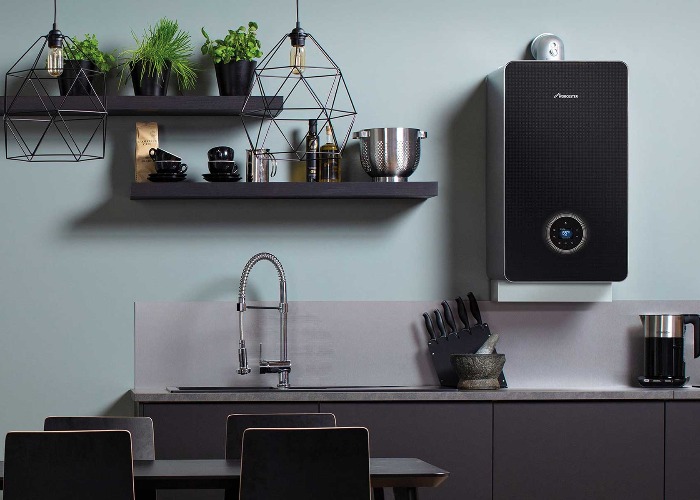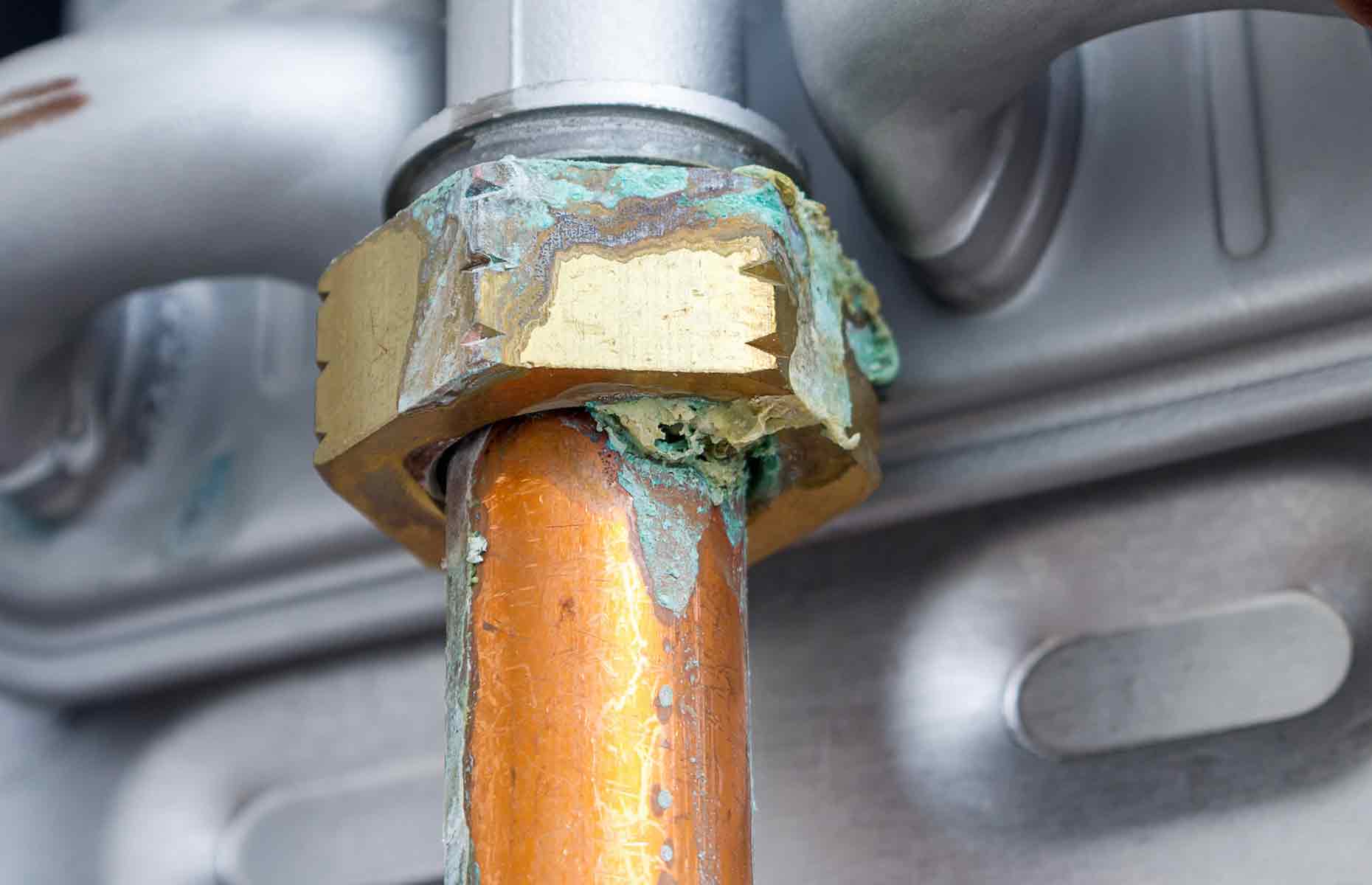Boiler not working? 8 common heating system problems and solutions

Here's how to identify what's wrong when your boiler's on the blink
When something goes awry with your old faithful boiler, it can quickly spiral into a property nightmare and cause untold chaos in the winter months.
But if you know what to look out for, from leaks to banging and spluttering, you can take action before the problem escalates.
Some issues you can safely troubleshoot and resolve yourself, but others will require calling in a qualified Gas Safe-registered heating engineer to get things back up and running.
Here are the most common heating system problems and how to fix them.
1. Boiler leak
Leaks are most typically caused by a broken part, such as the seal for the boiler pump (this moves hot water around your system) or the pressure relief valve.
You could also be dealing with high boiler pressure – an extreme build-up of pressure can cause the pressure relief valve to open and start leaking water in order to protect your appliance. While bleeding your radiators can help to reduce the pressure (see below), it's a good idea to get a professional in to check for obstructions.
Alternatively, if the leaking is specifically around the pipes or tank, it may be a sign of corrosion, in which case you'll likely need elements of your heating system replaced.
 A corroded boiler pipe. Image: Yevhen Prozhyrko / Shutterstock
A corroded boiler pipe. Image: Yevhen Prozhyrko / Shutterstock
Leaks can occur from faulty installation too, so if you’ve had a new boiler fitted, speak to your installer. Never attempt to repair leaks yourself – always call a Gas Safe-registered engineer.
Get three FREE quotes for a new boiler from local engineers now with BoilerGuide
2. No hot water
The simplest explanation for a lack of hot water is that the thermostat may have been set too low or that its batteries have run down. Try turning the thermostat high for a short period to help the hot water to return to normal and check that the boiler’s clock and timer are correct.
While you’re there, check your boiler for an error code. If there is one, look up what it means online or in your manual – a simple boiler reset may resolve it.
It could also be that the pilot light, if you have one, has gone out, preventing your boiler from heating up. Unless you smell gas or suspect a leak (in which case call a Gas Safe-registered engineer), follow the manual’s instructions to relight it.
A power supply problem can be a cause too, so see if a switch has tripped on your fuse box and try turning on your lights and sockets.
READ MORE: 7 ways to keep your boiler running smoothly all year round
If the temperature's taken a tumble, it could be that your condensate pipe – which allows water to drain from your heating system – is frozen. The first indications of this are no heating and hot water, but you can usually confirm that this is the case with a visual inspection.
Try pouring warm water over the frozen section of the pipe, starting from the pipe outlet. When all of the ice has melted, restart your boiler. You can insulate the pipework to prevent the issue from reoccurring.
Worn boiler parts, such as diverter valves and diaphragms (these direct hot water when you turn on the hot tap), can also stop a boiler from working and need to be replaced by an engineer.
If there’s no water from the hot tap or it’s sputtering, the culprit could be an airlock in your hot water system. There are DIY methods to clear it if a professional isn’t available but your best bet is to call a plumber.
3. Thermostat not working
A faulty room thermostat could be the reason why your boiler isn’t firing up, so if the display looks faint, change the batteries.
If the thermostat is old, it may be starting to malfunction and not register room temperatures properly. In this case, replace it with a new one.
Another cause of a faulty thermostat can be its location – if it’s too close to a radiator or near a draught it could be misjudging the temperature. Moving it to a more neutral spot can help to improve its accuracy.
4. Radiators not heating up
If your radiators aren’t on when you expect them to be, first check that your heating is on the right setting and that your boiler is working properly. If it’s a combi-boiler, make sure that ‘summer mode’ (ie. hot water but not heating) hasn’t been switched on.
Another cause of cold radiators could be air in the system, which prevents hot water from distributing properly. This can be solved by turning all the radiator thermostats to full (if any are stuck on low that could also be a cause) and running the heating for 10-15 minutes.
Turn the heating off and let the radiators cool for an hour, then bleed the radiator nearest the boiler until water comes out, then repeat for each radiator. You’ll need a radiator key to open the valve and a cloth to soak up the water. Finish by checking that the boiler’s water pressure is correct.
5. Radiator is cold at the bottom
This is a sign that something is stopping the flow of water inside the radiator – usually a sludge of limescale, rust and water that gathers over time. It’ll need to be flushed by a plumber to remove the sludge. They can add a rust inhibitor that’ll help prevent build-up in the future.
If flushing doesn’t work, the problem may be a blocked pipe or an issue with the pump in your boiler, which again, will require professional attention.
6. Broken boiler
Boiler breakdown is often because of rust build-up or parts, pipes and connections that have broken or corroded inside. For example, a pilot light can keep going out because of a broken thermocouple – this is a device that measures temperature and regulates the gas flow inside your boiler.
Similarly, motorised valves can perish over time, resulting in heating and hot water turning on when they're not needed or vice versa.
Replacement parts installed by a Gas Safe-registered engineer will solve the issue if the rest of the boiler is in good order. If not, and your boiler is more than 10 years old, you may need to invest in a new one.
7. Low boiler pressure
The water pressure in your heating system should be set between 1 and 1.5 bar – if it’s too low, adjust it following the instructions in your manual or seek professional advice if you're unsure.
A loss of pressure can also be a sign of an internal leak. While often difficult to pinpoint, the majority of leaks occur at joints, for example where supply pipes meet radiators. If a visual examination reveals damp patches or pools of water, or you suspect water is escaping somewhere in the system, get an engineer in to tackle the problem
If no signs of leaking are present, you can repressurise your boiler yourself if you feel comfortable. If not, it's best to seek an expert's help.
8. Noisy boiler
The type of noise your boiler makes can be a good indication of the problem. For example, a kettling noise (often compared to the sound of a boiling kettle) can be a sign of a leak in your boiler system. It can also signify a build-up of limescale or sludge – a Gas Safe-registered engineer can flush your system to remove the deposits.
A buzzing noise could point to electrical components needing to be replaced, while a loud humming could be a seized part on the boiler pump.
Constant gurgling noises point to issues with water circulation, such as too much air trapped inside the pipes (bleeding your radiators can resolve this), low water pressure or a frozen condensate pipe.
If in doubt, it's always best to seek the opinion of a professional – and don't forget that getting your boiler serviced annually can help stop small problems from spiralling out of control.
READ MORE: 6 common plumbing problems and how to fix them
Featured image: Worcester Bosch
Comments
Be the first to comment
Do you want to comment on this article? You need to be signed in for this feature